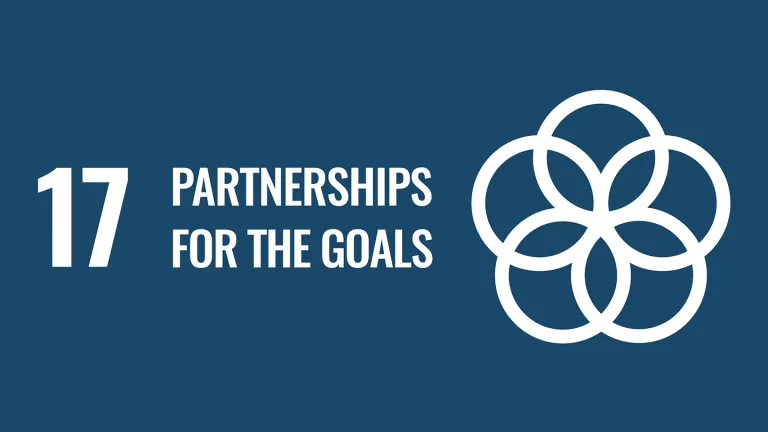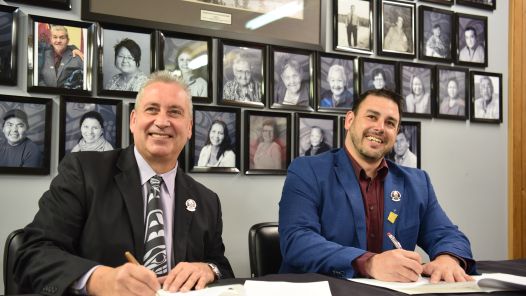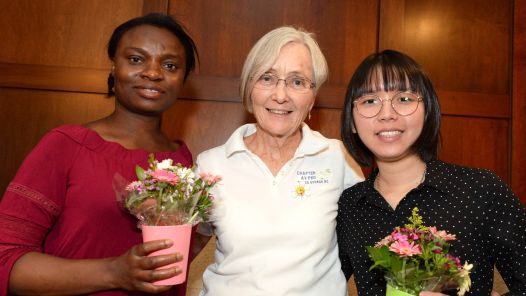
"Revitalize the global partnership for sustainable development."
UNBC engages with partners from government, civil society, other institutions, industry, and our communities in general to work towards a more sustainable future. We are working with local governments throughout our region to provide updated solutions to issues such as clean water, sanitation, land use, water management, and climate action. We work with NGOs on issues such as gender equity in the construction industry, addressing housing shortfalls in communities, and developing innovative health solutions. We are partnered with other universities through RUCBC, IURC, and NCCIH. And with industry through MITACS and our office of Research and Innovation. All of these interactions further our goal of sustainable development and green principles.
Sustainability Advisory Council
The Sustainability Council serves as an advisory and policy development body for initiatives at UNBC aimed at achieving the goal of being recognized as Canada's Green University™. The council, along with its sub-committees, is composed of UNBC staff, faculty, students, and alumni.
Travelling Knowledges Program
The "Travelling Knowledges: Local Cultures and Environments Across Geographies" program at UNBC allows students from any discipline to explore diverse global issues, including sustainability, human rights, and socio-environmental challenges. Students can study abroad, immerse themselves in different cultures, and gain academic credit through field schools, exchanges, or individual travel. The program focuses on helping students bring their new knowledge back to Canada, with opportunities for travel to countries like New Zealand, Mexico, Poland, India, and South Africa, or other locations offering meaningful educational experiences. Funded by the Government of Canada and UNBC through the Global Skills Opportunity (GSO), the program equips students with valuable intercultural, leadership, and work skills.
Indigenous People's Observatory Network (IPON)
UNBC is part of the Indigenous Peoples Observatory Network (IPON), which is a global research initiative that directly supports SDG 17 by supporting inclusive, cross-sectoral collaborations aimed at enhancing resilience in Indigenous communities worldwide. IPON unites Indigenous and non-Indigenous researchers, decision-makers, NGOs, and community members to understand and respond to climate, food, and health challenges, building resilience to manage global change. The network operates in over 100 Indigenous communities across 17 countries, including partnerships with communities in Ghana, Fiji, Kiribati, Namibia, and Peru, among others.
Community Development Institute
The UNBC Community Development Institute (CDI) strongly supports SDG 17: Partnerships for the Goals through its collaborative approach to research and community engagement. By working with local governments, Indigenous communities, non-profits, and academic partners, the CDI helps develop practical, evidence-based solutions to issues like housing, economic transition, and sustainability in non-metropolitan regions. Through knowledge-sharing initiatives and policy-focused research, the CDI builds local capacity and strengthens networks that advance sustainable development across northern BC and beyond.
Environment Community Health Observatory Network (ECHO network)
The ECHO Network is a five-year research program funded by the Canadian Institutes of Health Research (CIHR) that exemplifies SDG 17: Partnerships for the Goals through its collaborative, cross-sectoral approach. Focused on understanding and responding to the impacts of resource development on health and well-being—particularly in rural, remote, and Indigenous communities—the network unites university researchers, health authorities, Indigenous organizations, and community partners to co-create knowledge and actionable solutions. Guided by a steering committee co-chaired by Dr. Margot Parkes (UNBC) and Dr. Raina Fumerton (Northern Health), ECHO integrates expertise across the health, social, and natural sciences to bridge research and practice. Since its launch in Prince George, British Columbia, in 2017, the initiative has grown into a network of more than 60 collaborators across Canada and internationally, demonstrating how inclusive partnerships and shared governance can strengthen collective capacity to address interconnected environmental, social, and health challenges in alignment with the Sustainable Development Goals.
Sustainability in action at UNBC
Upcoming events
There are currently no events to display.
Explore the SDGs
UNBC is committed to advancing the United Nations Sustainable Development Goals (SDG) through a wide range of initiatives aimed at fostering sustainability, inclusivity, and global responsibility.


